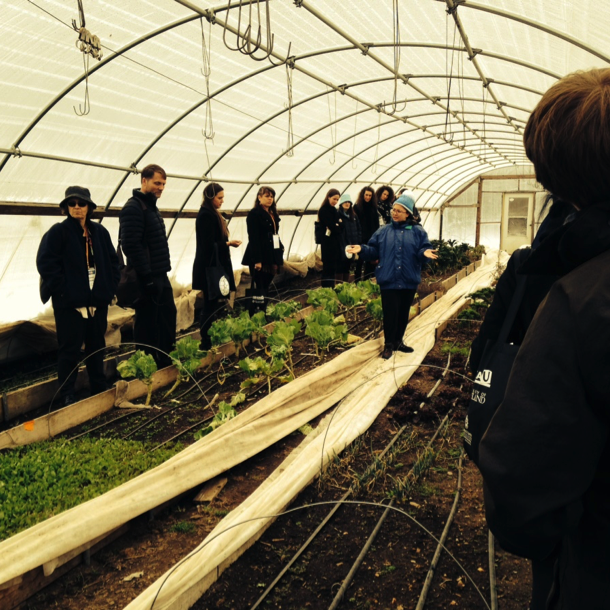Earlier this year, I had the immense privilege of attending the Ashoka U Exchange in Washington D.C. as a part of the Tulane delegation. The Ashoka U Exchange, an international conference attended by about 700 people this year, seeks to bring together university faculty, staff, administrators, NGO and nonprofit partners, and students to catalyze discussions over the meaning and future of social innovation and social entrepreneurship in order to further a culture receptive to more radical change and to support future generations of changemakers.
Having learned about the Ashoka Foundation in my previous SISE coursework, I knew just how exciting and educational an opportunity like this one would be, and I was eager to meet fellow students involved in social innovation initiatives on their campus and to learn how other colleges and universities are empowering students to think critically about pressing social problems. One of the most interesting facets of social innovation is its intersectional relationship with social justice and service work, and I was very excited to have the opportunity to explore these relationships with an expert panel of Edgar Cahn (the founder of TimeBanks USA), Shary Erlich (a grad student at NYU who identifies with and organizes with several marginalized communities), and Kathryn Hall-Trujillo (founder of the Birthing Project USA and a guest speaker at the Changemaker Institute this year). In the ensuing discussion, the panel and audience engaged in a very critical dialogue, analyzing the relationship between the often (or arguably, inherent) oppressive nature of capitalism, and the role of furthering social entrepreneurship while being conscious of the larger systemic pressure it can put on marginalized communities. This was a very exciting conversation for me, as many of my previous SISE professors and mentors were a part of the discussion, and it laid an excellent foundation for further discussion about Tulane’s service learning programs, SISE programs, and Tulane’s relationship with New Orleans within the Tulane delegation- all necessary conversations that we need to be having on an administrative level.
Another highlight of the weekend was having the opportunity to represent Tulane’s Office of Orientation and Parent Programs in a presentation given by me and my colleague Rebecca Otten, the Assistant Director of Social Innovation Engagement at CELT. Having played a formative role in the shaping and implementation of the IGNITE: Community Creativity, Change freshman orientation program, it was exciting to hear feedback and talk about the great successes we have had this year with the program from students and staff who play similar roles at their own schools.
While these two highlights may offer a window into the invigorating and critical discussions had at the Ashoka U Exchange this year, they are only a small part of the event’s programming. Equally exciting were the opportunities to visit and learn from community partners, such as a local urban garden, and the community dinners, which offered an intimate opportunity to discuss specific themes (I attended the fossil fuel divestment dinner, and was able to meet and network with student organizers at Boston College and Hamilton College).
Having Tulane support me in my pursuit to further social innovation was incredibly encouraging, and I appreciated the opportunity to meet with a wide variety of people to discuss the implications and future of social innovation and social entrepreneurship. Having served as a CELT Fellow for the Social Innovation Engagement core this year, I have had numerous opportunities for the praxis of guiding principles of social justice and social innovation through my work with the Changemaker Institute and SISE programming. By creating a community of changemakers, as Ashoka is currently doing, I am excited about the future of these fields, and I can’t wait for Tulane to host next year’s 2016 Ashoka U Exchange!
Photo: A visit to a local urban farm that teaches high school students how to sustainably grow food to support their communities. It was about 25 degrees Fahrenheit outside, but we were all sweating inside this greenhouse!
By Elias Garcia, Tulane Student and Guest Blogger

